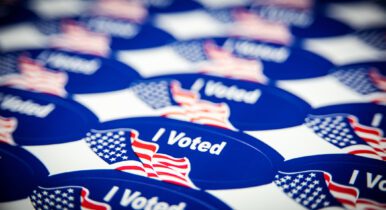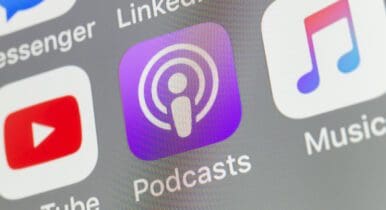How Campaigns Can Capitalize on the Growth of Podcasts
For consultants looking beyond traditional outlets to generate earned media for their clients, podcasts are an increasingly popular pitch.
The decline of blogs and, before that newspapers, combined with the inability of local broadcast news stations to give adequate coverage to a competitive primary, prompted some comms professionals to start exploring podcasts as an alternative to personalizing a candidate and getting their message out.
“I think podcasts are the modern version of the blog if you will. It’s a great place to have a lengthy conversation about a campaign,” said Brendan Steinhauser, a Texas-based GOP consultant who has used a podcast strategy for some candidate clients.
For instance, while Rep. Dan Crenshaw (R) was competing for the nomination in Texas’ 2nd district in 2018, Steinhauser pitched him to podcasts hosted by veterans.
Now, some 2020 presidential candidates have been making the podcast rounds.
Democratic presidential candidates Andrew Yang and Pete Buttigieg have been incorporating podcasts into their media strategies. Yang has made 107 podcast appearances while Buttigieg has made 77, according to Podchaser, which dubs itself the IMDb of podcasts.
By comparison, Cory Booker had made 42, Elizabeth Warren 41 and Kamala Harris has made 20.
“If you’re trying to build your name ID, it’s a great low-cost way to do that,” said Steinhauser. “You can take the content and distribute the content [from the podcast] on your social media channels. It allows [the candidate] to build a portfolio that you can use to get bigger and bigger shows.”
Steinhauser, an avid podcast listener, noted that the show doesn’t have to be political to be worthwhile for a candidate to make an appearance. If the candidate is a motorcycle enthusiast, she could be pitched to appear on one that covers motorcycles.
GOP consultant Liz Mair stressed that that sort of pitch needs to be authentic. “It can’t be a thinly veiled pitch for getting your talking points across,” she said.
In other words, the candidate really has to know something about the subject matter if it’s a non-political show.
Mair said she often got the thinly veiled pitch during her blogging days — and passed on many. “Those kinds of pitches never work well,” she said. “You can tell when it’s going to be an opportunity for somebody to come in and rehash their talking points.”
Still, Mair agrees with Steinhauser that podcasts are good venues for candidates. “Doing podcast outreach should really be a priority for people on both sides of the aisle,” she said.
Mark Harris, a GOP comms consultant based in Pennsylvania, stressed that candidates need to be well-prepared for these types of appearances.
“It’s more akin to the traditional coffee klatch,” Harris said. “It’s a much more interactive and frankly personal format.”
Meanwhile, podcasts are also an increasingly popular outlet for paid media. Last year, podcasting advertising in the U.S. hit $479 million — an increase of 53 percent from 2017, according to the Interactive Advertising Bureau.
“Podcast advertisers are newcomers or start-ups, and the podcast ad might be the first time the listener has heard about that company,” marketers Krystina Rubino and Lindsay Piper Shaw recently wrote in TechCrunch.
“Having the first touch with consumers be from a thorough, personal, and often funny host-read interaction is incredibly valuable and helps brands jump over the credibility hurdle.”



